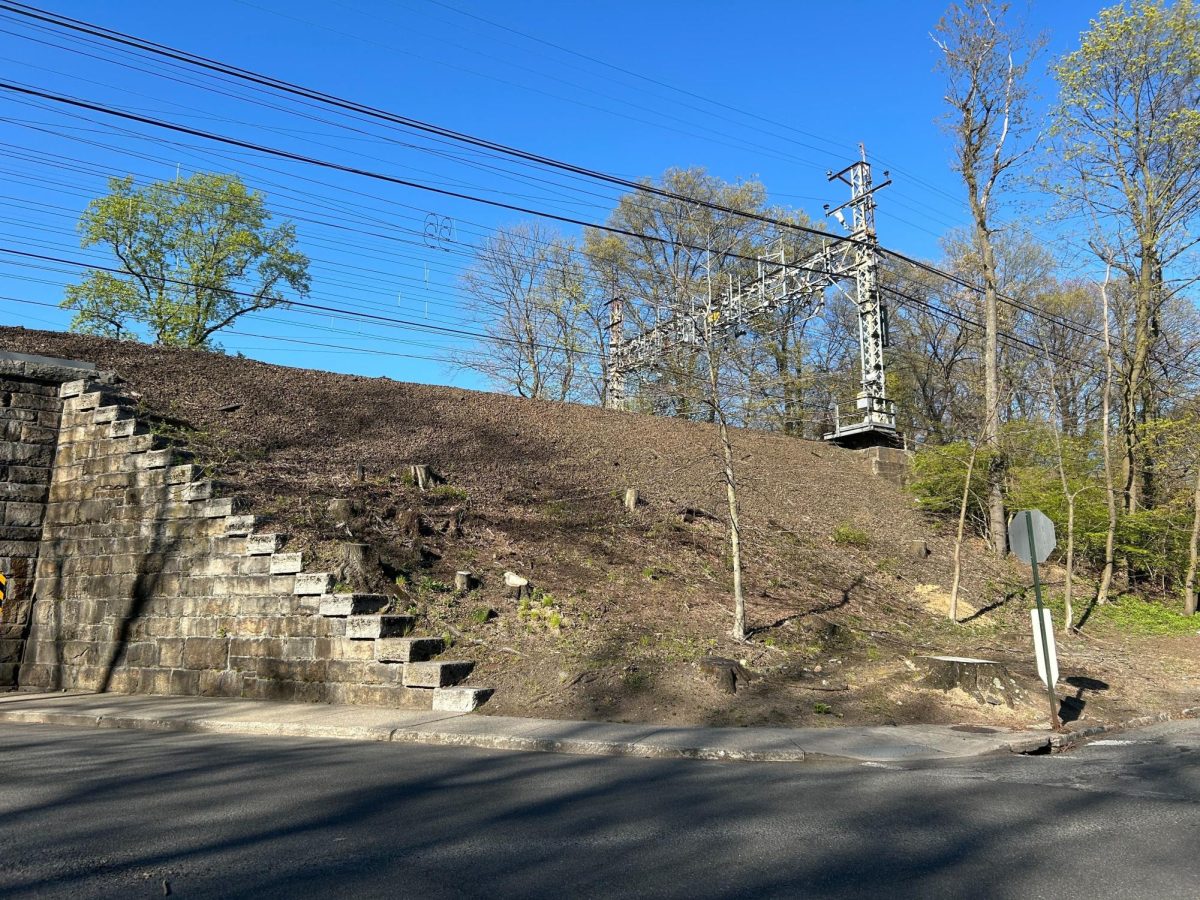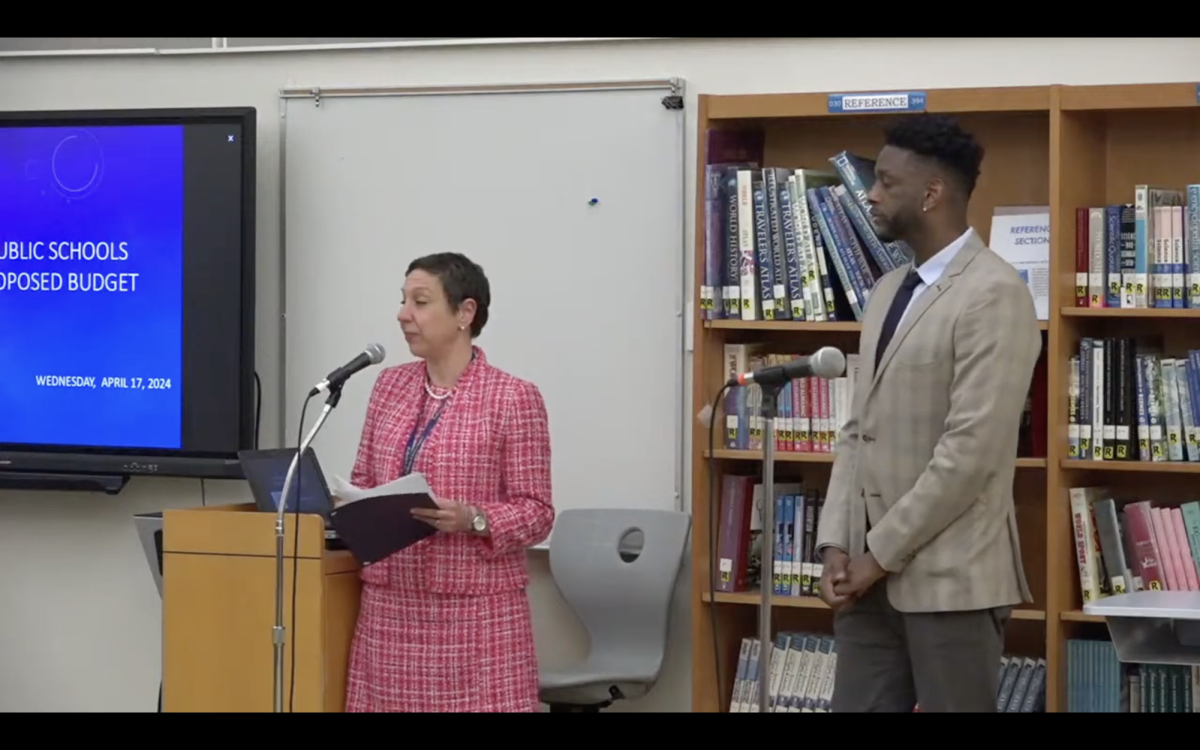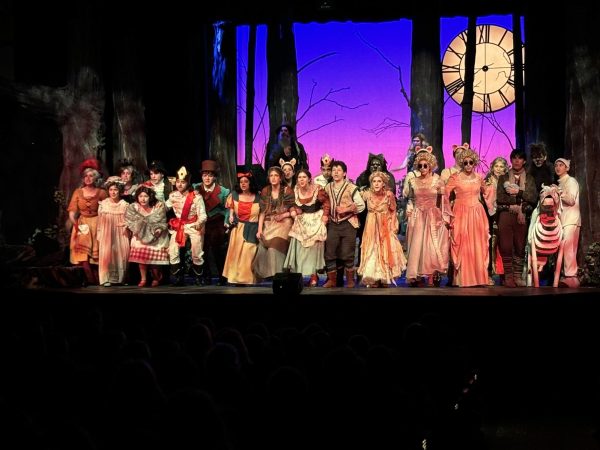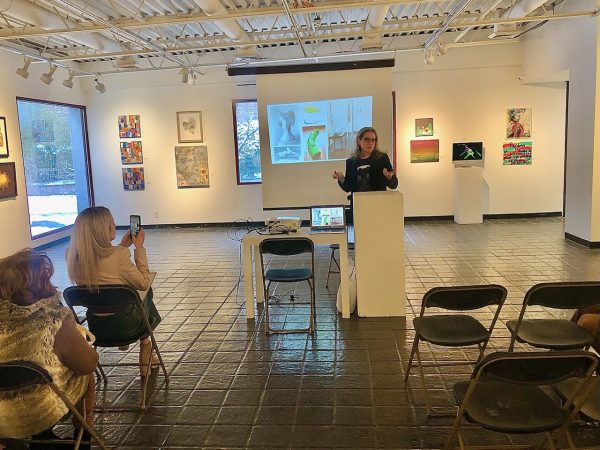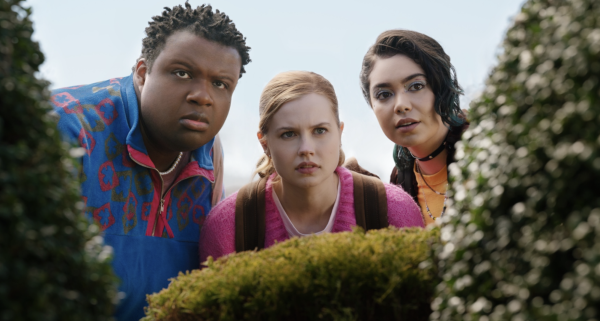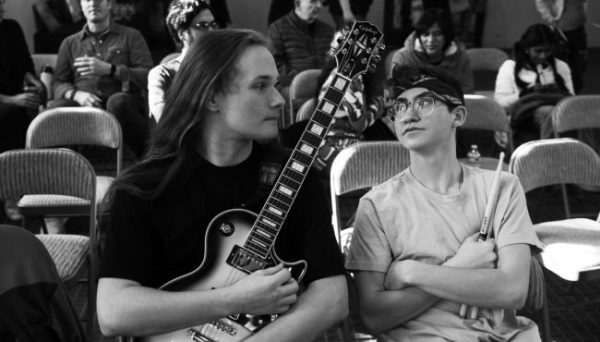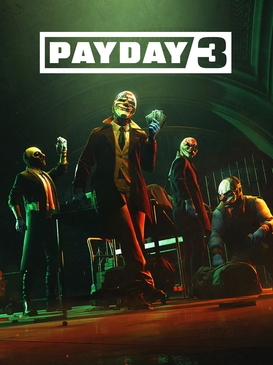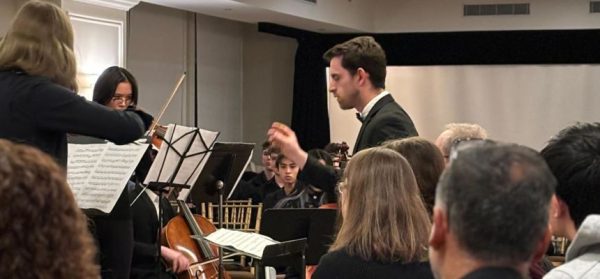Review: ‘Hereditary’ tells a messy story with refreshing horror

June 8, 2018
“Hereditary” is a movie that grabs you right away. It begins with a shot of a room within a highly detailed miniature house. The camera zooms in to the room, revealing it to contain the characters of our story, switching from this god-like perspective to the real world. It conveys a feeling of helplessness to the audience, making us feel as if there is always something bigger out there, stealing away the control we have over our own lives.
However, this proves to be an ironic emotional note to begin on, as after a very strong first half, the movie loses control of itself, introducing too many ideas just too late. As a horror movie, the scares here prove to be some of the best of recent years, taking classic horror tropes subverting them to a more effective degree.
“Hereditary” follows the Graham family, made up of mother and father Annie and Steve, along with older brother Peter, and younger, very strange sister, Charlie. We look on after the death of Annie’s mother, and another tragedy (that shan’t be spoiled here) divides the family, deteriorating their psyches in different ways. However, the movie blurs the lines between what is real and what is a product of a damaged mindset, as supernatural elements begin to creep into the lives of the Graham family.
The problem with “Hereditary” lies not with its acting or its horror, but rather its structure. It begins with an extremely strong first act that focuses more on psychological horror. None of the scares come from people or “other-worldly spirits” wishing to inflict harm on others, but rather from what happens when tragedy divides people, and how we blame ourselves for often uncontrollable situations. This first half feels poignant, like it has something very important to say about life.
This message is never fully conceived, as the second half changes radically in its tone, switching from almost entirely psychological horror to purely supernatural. No longer are the lines blurred, but rather straightened out, answering all of the questions the audience had about what was going on. In reality, this ambiguity about what was really happening was what made the first half scary. Not to say that the second half isn’t scary — it certainly is. It just feels like a different movie. An interesting movie, but a different movie nonetheless.
This problem could have been fixed if more supernatural elements were introduced early on, and more psychological elements were utilized. If “Hereditary” had narrowed its scope, it could have made for a fascinating movie about family dynamics, guilt, and the fleeting nature of life. Instead, it tries to do much, answering so many of its ambiguous questions rather than let the audience decide what happened and what didn’t for themselves. The characters, acting, and horror are all there, making it a shame that it feels so messy by the end.
On the topic of those characters, there are some amazing performances to be viewed here, despite the structural problem. The two that come to mind at first are Toni Collette as the mother, Annie Graham, and Alex Wolff as the teenage son, Peter Graham. It is a grotesque delight to watch as Collette begins as the strong, stern mother, and then slowly deteriorates into a broken, manic woman. Likewise, Wolff begins the film as the rebellious teenage son and ends up like a terrified child. Both give stellar performances, selling the horror of the story with horrifying realism.
It is also quite refreshing to see a different approach to scares and horror in this movie. Rather than relying on jump scares and other cheap tactics, like so many horror flicks do these days, “Hereditary” finds different ways to scare you that still may lead you to check the locks on your doors when you return home. The few jump scares in the movie are usually auditory, rather than visual. This works very effectively, as one is unable to predict when the jump scares are going to happen. You can’t see sound coming the way you can anticipate a jump scare, and the movie takes full advantage of that. “Hereditary” also lets the camera often linger on scary imagery, forcing your brain to comprehend the incomprehensible, disturbing ideas being presented before you. This interesting approach to horror keeps you on edge and works more effectively than most horror movies these days.
“Hereditary” isn’t a bad movie; it’s just a messy one. There are two very strong, very different halves to this movie that feel like they should either be integrated earlier in the film or be two separate movies entirely. While these problems can leave the audience confused or unsure how to feel about the events, stellar performances by Wolff and Collette, and a new approach to horror at a time where the genre tends to be very “cookie cutter,” ensure that “Hereditary” is still an enjoyable movie. If you are not a fan of horror, or of movies that are all around depressing, perhaps you should skip this one. To the rest of you, you should still check this out, as it is not often we get to see horror movies these days with such a unique approach to scaring their audiences.




